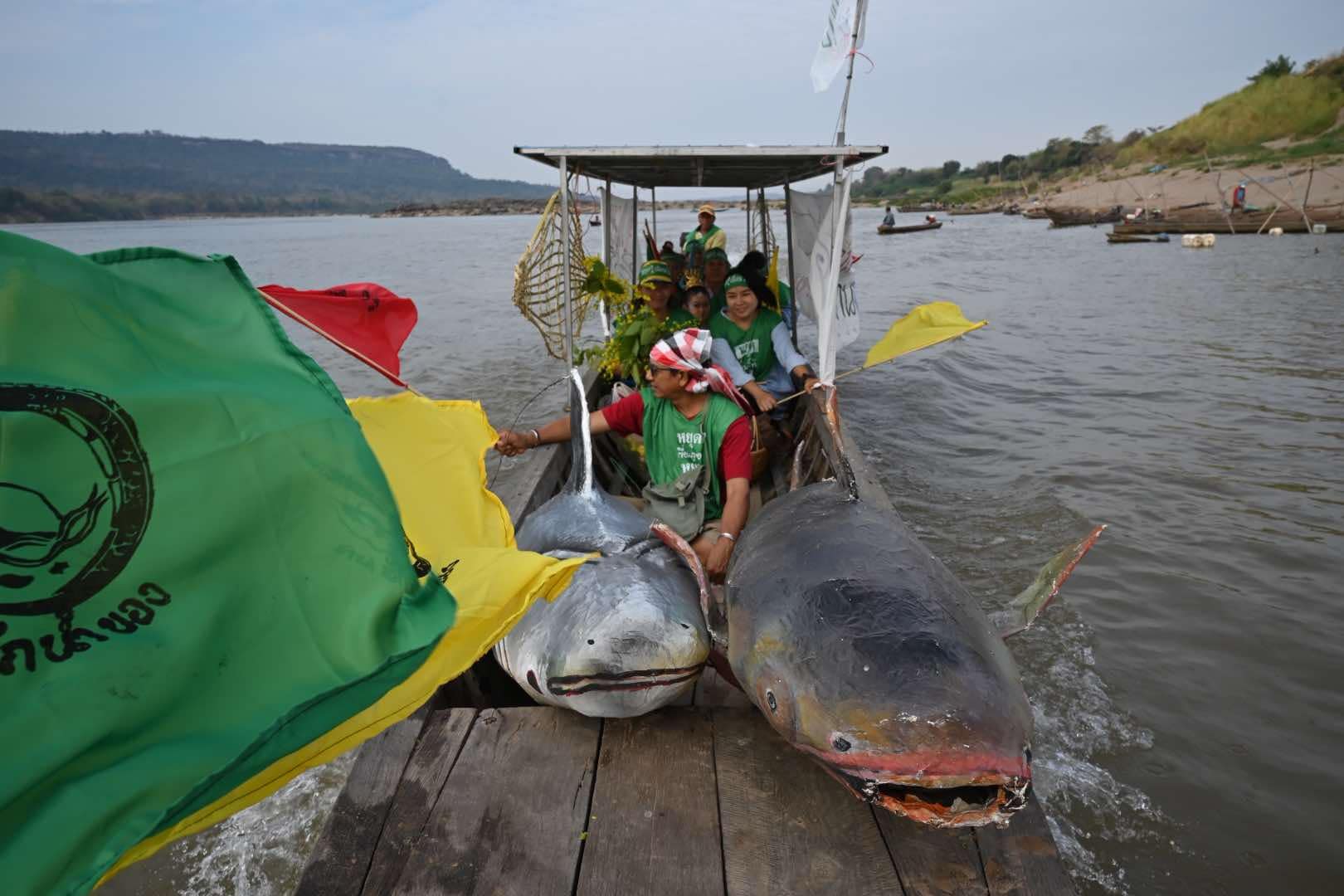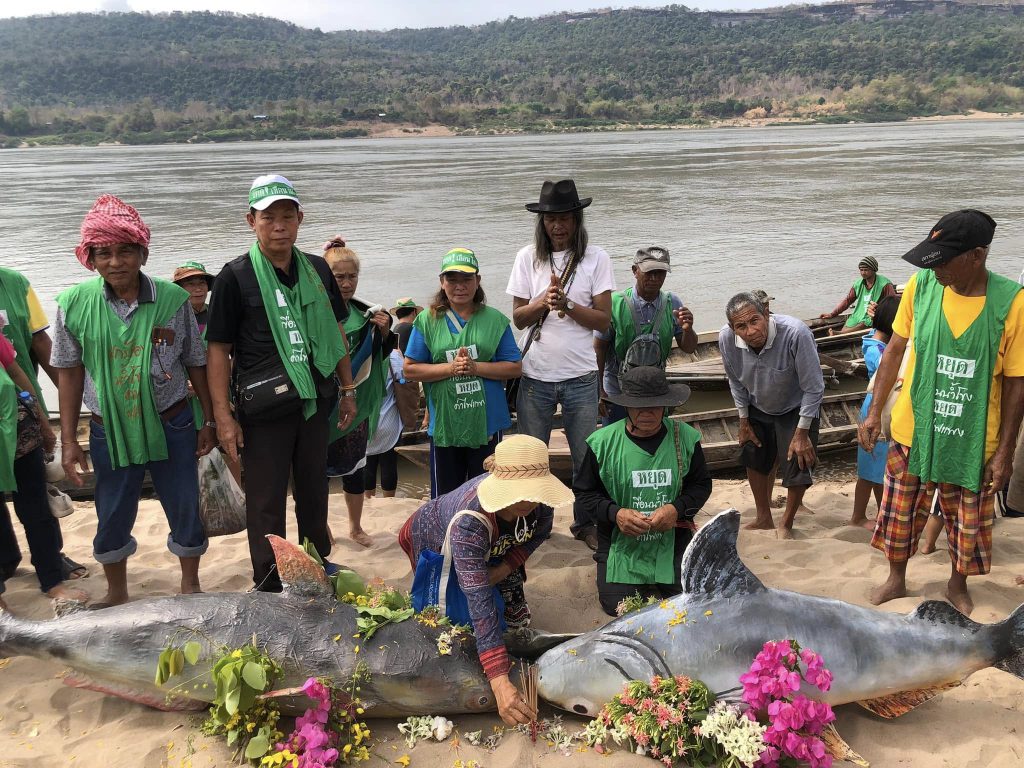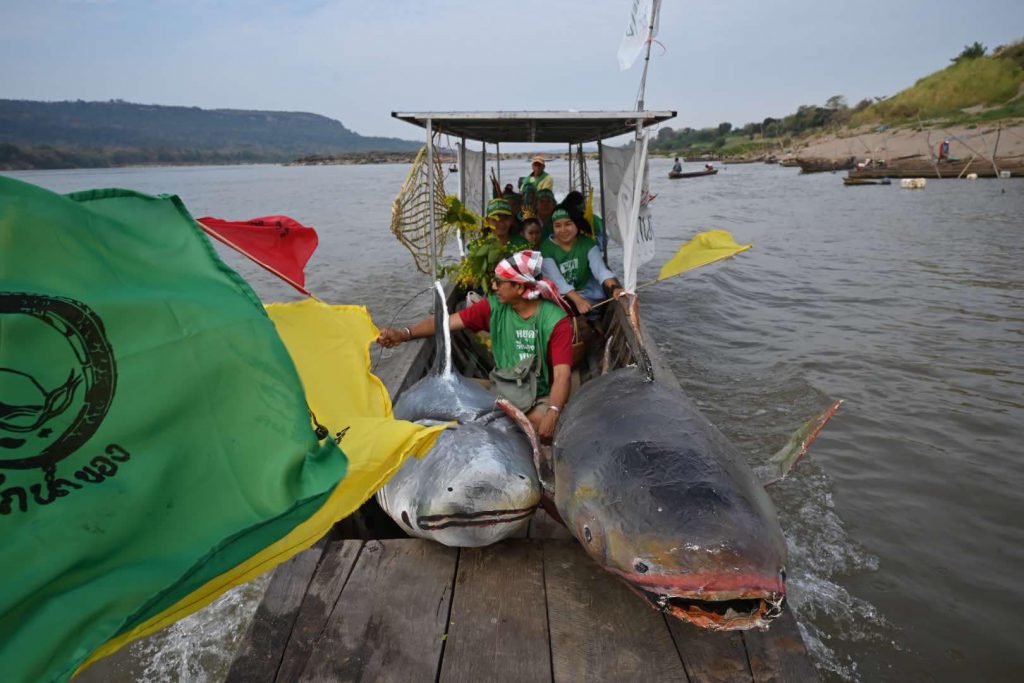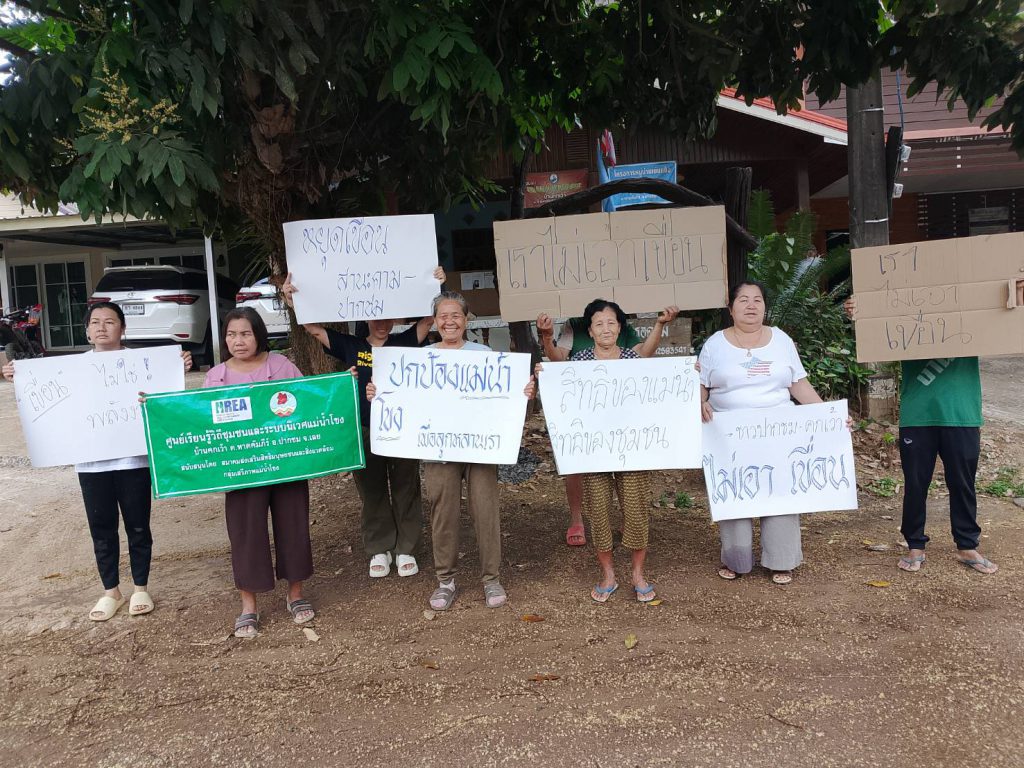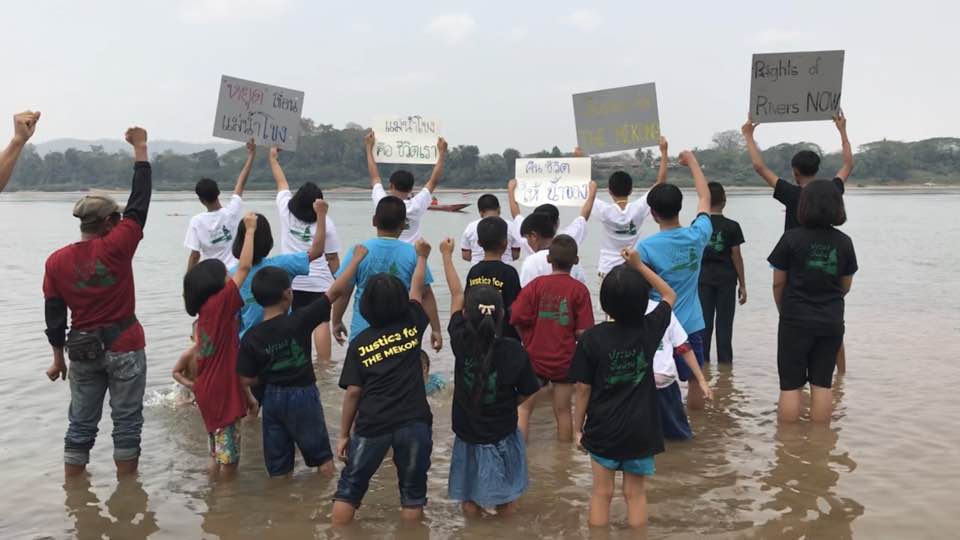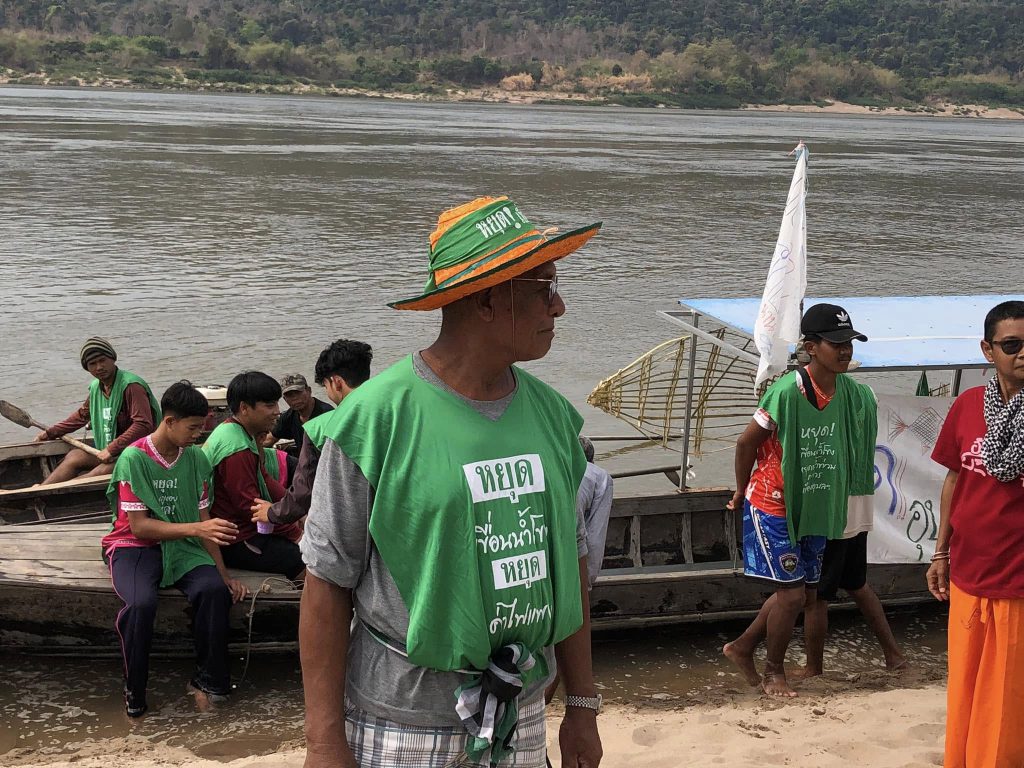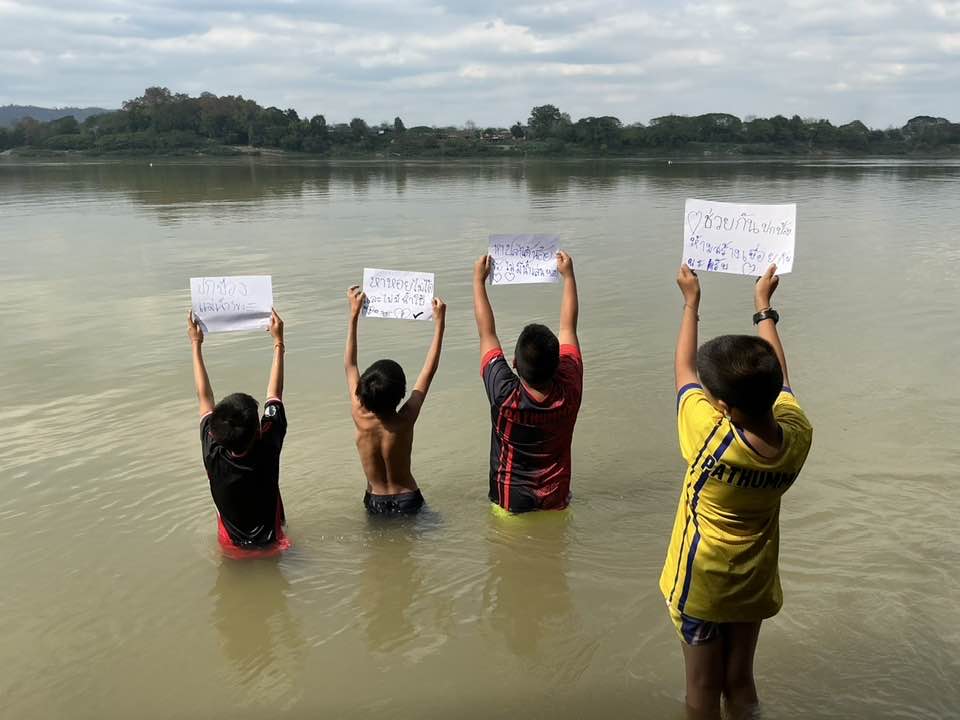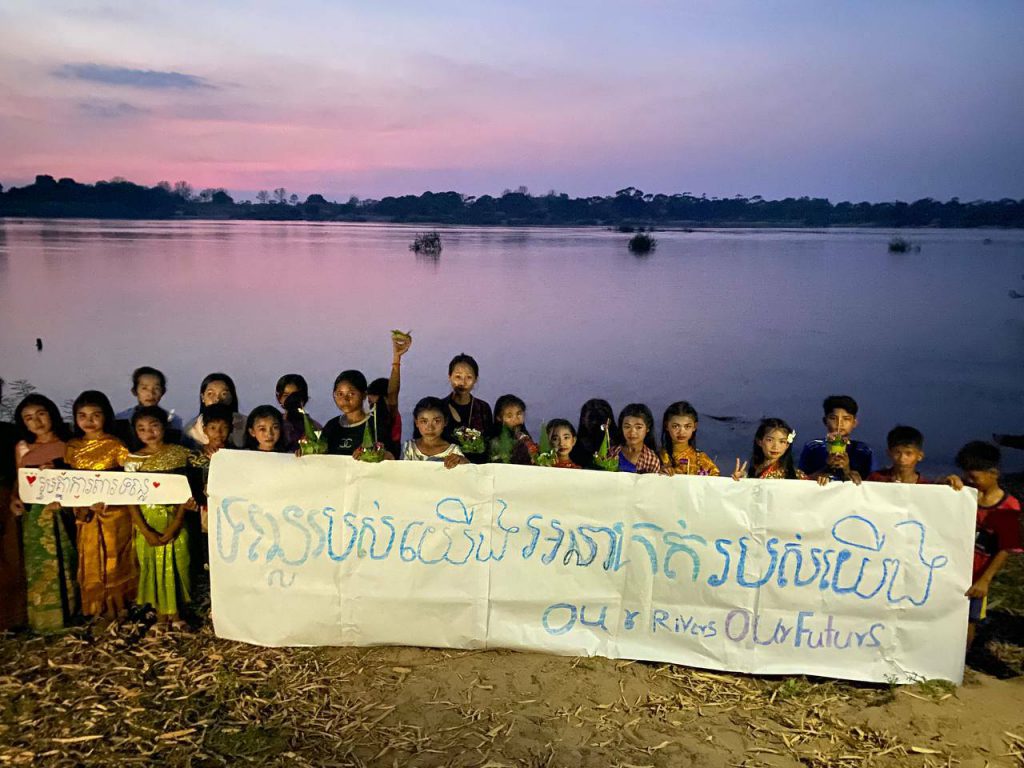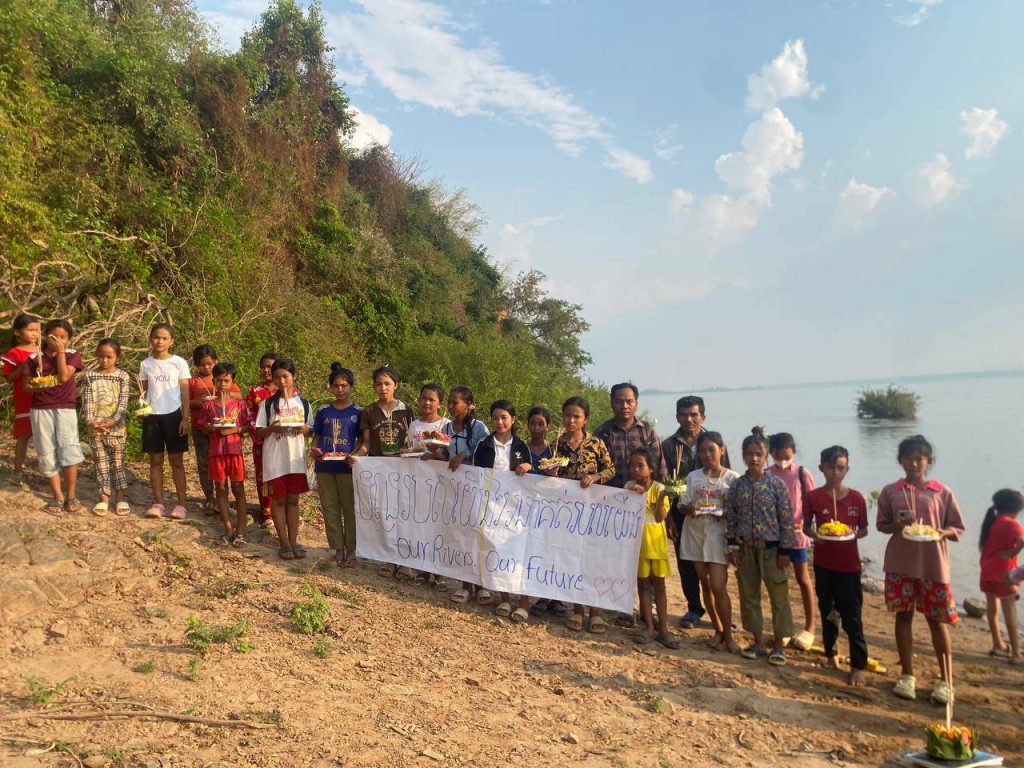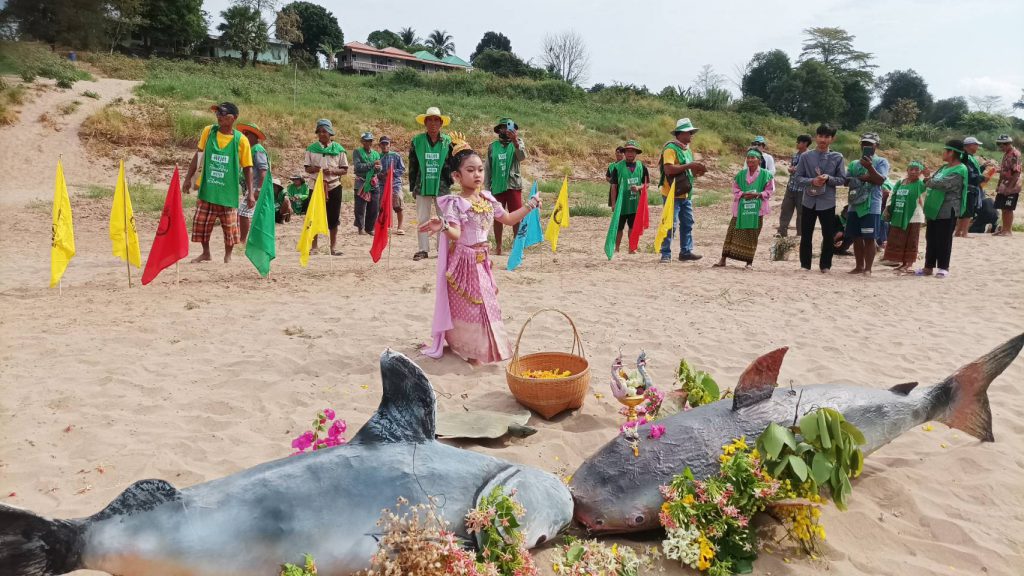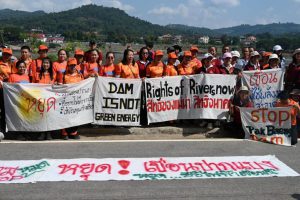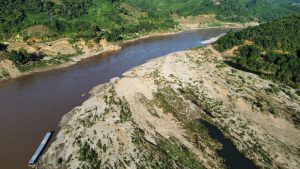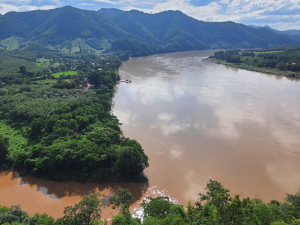กิจกรรมวันหยุดเขื่อนของชาวแม่น้ำโขง ปี 2568 เริ่มจากวันที่ 11 มีนาคม 2568 มีการจัดเวทีเสวนา “เขื่อนที่สร้างทางโน้น หนาวถึงคนทางนี้” ที่ SEA Junction หอศิลปวัฒธรรมกรุงเทพมหานคร โดย International Rivers, JustPow และ JET in Thailand เป็นวงเสวนาที่ให้ข้อมูลเกี่ยวกับงานวันหยุดเขื่อนโลก และมายาคติเกี่ยวกับ “ไฟฟ้าพลังงานน้ำเป็นพลังงานสะอาด” ซึ่งนำไปสู่การก่อสร้างเขื่อนไฟฟ้าจำนวนมากในลาว และการซื้อไฟฟ้าของไทยเพิ่มขึ้นเป็น 10,500 เมกะวัตต์ ในปี 2024 และนำไปสู่ค่าไฟแพงและความรับผิดชอบด้านสิ่งแวดล้อมและสังคมจากโครงการเขื่อนขนาดใหญ่ในประเทศเพื่อนบ้านและการส่งไฟฟ้าในระดับภูมิภาคอาเซียน
วันที่ 13 มีนาคม 2568 ที่ จ.อุบลราชธานี มีงานเสวนา “คนอุบลเอาบ่? : น้ำท่วม เขื่อนใหม่ ค่าไฟแพง” โดย JustPow, JET in Thailand, International Rivers, เครือข่ายประชาชนจับตาน้ำท่วมอุบล-เขื่อนแม่น้ำโขง และเครือข่ายประชาชนจับตาการลงทุนในเขื่อนลาว Laos Dam Investment Monitor – LDIM ในเวทีมีการหารือปัญหาเมืองอุบลและภาวะน้ำท่วมหนัก สาเหตุและการจัดการน้ำท่วมเมื่อปี 2562 และปี 2565 ของเครือข่ายคนจังหวัดอุบลราชธานี และข้อกังวลต่อโครงการเขื่อนพูงอย บนแม่น้ำโขง ที่เมืองปากเซ ซึ่งอาจจะส่งผลกระทบต่อการระบายน้ำช่วงฤดูฝนของแม่น้ำและเขื่อนปากมูล
วันที่ 14 มีนาคม ที่บ้านตามุย อ.โขงเจียม จ.อุบลราชธานี เครือข่ายชุมชนคนฮักน้ำของ บ้านตามุย, สมัชชาคนจน เขื่อนปากมูล, กลุ่มรักษ์เชียงคาน, กลุ่มรักษ์เชียงของ และกลุ่มอนุรักษ์สิ่งแวดล้อม บ้านคกเว้า จ.เลย ได้ร่วมกันจัดกิจกรรมเพื่อปกป้องแม่น้ำและเรียกร้องหยุดการสร้างเขื่อนบนแม่น้ำโขง ทั้งโครงการเขื่อนสานะคาม โครงการเขื่อนปากชม โครงการเขื่อนบ้านกุ่ม โครงการเขื่อนพูงอย และเรียกร้องการฟื้นฟูแม่น้ำและวิถีชีวิตของชุมชนที่ได้รับผลกระทบจากเขื่อนปากมูล ชาวบ้านได้จัดขบวนเรือ ล่องแม่น้ำโขงเพื่อรณรงค์ปกป้องแม่น้ำ จำนวนกว่า 50 ลำ และจัดกิจกรรม “พิธีแต่งงานปลาบึก” และการอ่านแถลงการณ์เพื่อการปกป้องแม่น้ำโขง
ที่ อ.เชียงคาน จ.เลย กลุ่มเยาวชนได้จัดกำจกรรมเพื่อแสดงความห่วงใยต่อแม่น้ำโขง มีข้อความต่างๆ เช่น หาปลาได้น้อย จะไม่มีน้ำเล่น ปกป้องแม่น้ำโขง เช่นเดียวกับกลุ่มอนุรักษ์สิ่งแวดล้อมบ้านคกเว้า อ.ปากชม จ.เลย กลุ่มผู้หญิงได้ทำชูป้าย “เขื่อนไม่ใช่พลังงานสะอาด” เป็นต้น
The Mekong River community kicked off its International Day of Actions for Rivers activities on March 11, 2025, with a panel discussion titled “Dams Built There, the Cold Felt Here” at SEA Junction, Bangkok Art and Culture Center, co-organized by International Rivers, JustPow, and JET in Thailand, the discussion was on debunking the myth that “hydropower is clean energy,” and examine the rapid expansion of hydropower dams in Laos. The discussion also highlighted how Thailand’s increased electricity imports from Laos—reaching 10,500 MW in 2024—have led to rising electricity costs and environmental and social responsibilities tied to large-scale dam projects in neighboring countries and the ASEAN power grid.
On March 13, 2025, a public discussion titled “Do Ubon Residents Agree? Flooding, New Dams, and Rising Electricity Prices” was taken place in Ubon Ratchathani Province. Hosted by JustPow, JET in Thailand, International Rivers, the Ubon Flood Monitoring Network, and the Laos Dam Investment Monitor (LDIM), the forum explored the severe flooding in Ubon Ratchathani in 2019 and 2022, its causes, and flood management efforts. Additionally, concerns were raised regarding the Phou Ngoy Dam project in Pakse, Laos, which could impact flood discharge in the rainy season, and affect the Pak Mun Dam.
On March 14, 2025, at Ban Tamui, Khong Chiam District, Ubon Ratchathani, the Tamui Community Water Network, Assembly of the Poor – Pak Mun Dam, Rak Chiang Khan Group, Rak Chiang Khong Group, and Ban Kok Wao Environmental Conservation Group organized activities to protect the Mekong River and demanding a halt to the construction of the Sanakham, Pak Chom, Ban Kum, and Phou Ngoy dam projects. They also called for the restoration of the river and the livelihoods of communities impacted by the Pak Mun Dam. Over 50 boats took part in a river parade to raise awareness, along with a “Giant Catfish Wedding Ceremony” and a public declaration for Mekong River protection.
In Chiang Khan, Loei Province, local youth held events expressing concern for the Mekong River with messages such as “Fewer Fish, No Water to Play In, Protect the Mekong!” Similarly, in Pak Chom, Loei Province, women’s groups displayed banners reading “Dams Are Not Clean Energy” as part of their advocacy.
These activities highlight the Mekong River communities’ ongoing fight to preserve their way of life and protect the river from destructive dam projects.

